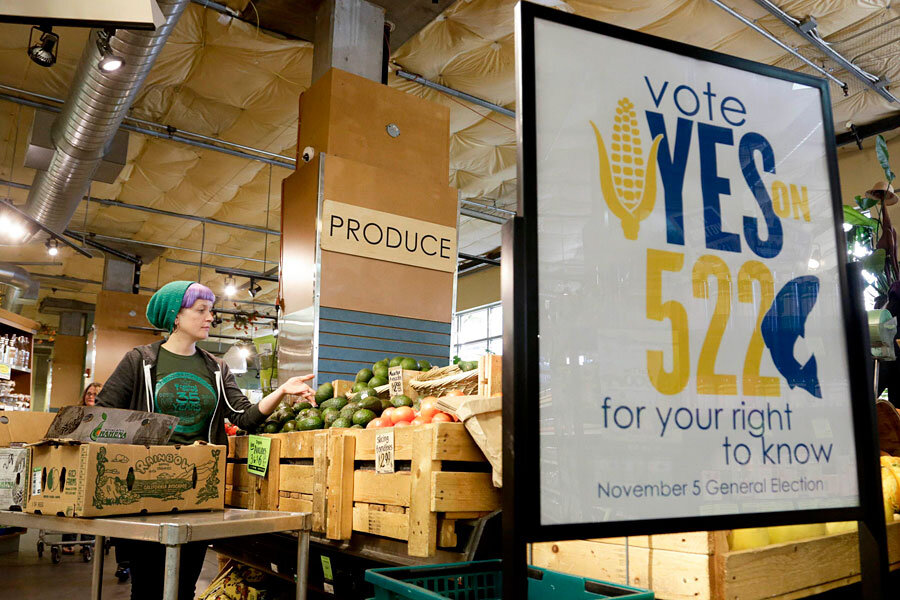Why do scientists have different opinions than the rest of us?
Loading...
There are wide opinion gaps between scientists and the public on a number of big issues, from the safety of genetically modified foods to the cause of climate change, a new survey suggests.
"There is a disconnect between the way in which the public perceives the state of science and science's position on a variety of issues," said Alan Leshner, CEO of the American Association for the Advancement of Sciences (AAAS), in a press conference on Wednesday (Jan. 28).
In addition, the general public is more optimistic about the future of science than those working in the trenches of scientific research, the survey finds. But there is some common ground: Scientists and the lay public agree that U.S. schoolchildren receive poorer-quality education in science technology, engineering and mathematics(STEM) than do kids in other countries, the study showed. [6 Myths About Girls and Science]
Wide gaps
Surveys have consistently found that only about half of the public believes humans evolved from earlier animals. Other studies have found that belief in human-caused climate change divides sharply along political lines.
But there has been less research comparing the views of scientists and the general public on a wide range of other topics.
To see how scientists' views differ from those of the general public, the Pew Research Center, in conjunction with AAAS, called a random sample of 2,002 adults around the country and asked questions about whether humans have evolved over time; whether genetically modified foods are safe; and whether the measles, mumps and rubella vaccine could cause autism. The researchers also contacted a sample of 3,748 U.S.-based scientists who are AAAS members to ask the same questions.
They respondents were also asked questions that touched on policy decisions and how society viewed science and its future.
On most of these issues, there was a big gap between the opinions of the general public and those of scientists. For instance, 88 percent of the scientists said genetically modified foods are safe to eat, compared to just 37 percent of other adults. About 89 percent of scientists said they favored using animals in research, compared to just 42 percent of lay people. And though 68 percent of scientists said it was safe to eat foods grown with pesticides, only 28 percent of the public said the same.
When it came to science relevant to controversial policy decisions, there were large gaps, too. About 87 percent of the scientists said climate change is mostly due to human activities, while just half of the public did. More than 50 percent of the public said they want increased offshore drilling, compared to less than a third of the scientists. And about 65 percent of scientists said they support building more nuclear power plants, compared to just 45 percent of the public.
There were a few areas of agreement, however: Roughly two-thirds of both scientists and the public said the International Space Station was a good investment, and large majorities of both groups said they favor developing bioengineered fuel. [Best Supporting Role: 8 Celebs Who Promote Science]
Overall, however, the public views science positively, the survey showed.
"The majority say the effect of science on the quality of food, health care and the environment has been positive," said study co-author Cary Funk, associate director of research at the Pew Research Center.
Scientists were also more likely to say it's a bad time for science, while the public was more optimistic about the state of the field. And both groups said that basic STEM education in the country lagged behind that of other nations.
Real-world significance
The reason for the gaps may differ for different issues, Leshner said.
On some issues, such as genetically modified foods, it may be that the public simply doesn't understand what the term really means, which suggests scientists need to do a better job of translating their science for the public, Leshner said in a media briefing Wednesday (Jan. 28).
But there are likely deeper causes behind the divide on other issues.
"In the case of an issue like evolution, the conflict is with people's core values and their core religious beliefs, and unfortunately we have known for decades that ideology and core beliefs trump science frequently," said Leshner, who wrote an editorial about the survey results that was published today (Jan. 29) in the journal Science.
But not everyone agrees that an opinion gap is always a huge problem.
It's unlikely to have huge impacts on society if many people do not believe humans evolved from primates or that the world began in a Big Bang, said John Evans, a sociologist at the University of California San Diego, who was not involved in the new survey.
But with issues like climate change, the gap between the public and science can cause more problems, Evans said.
If humans are warming the Earth but the public doesn't believe in climate change, then "it gives politicians a reason not to do anything about it," Evans told Live Science.
Follow Tia Ghose on Twitterand Google+. Follow Live Science @livescience, Facebook & Google+.Originally published on Live Science.
- Beyond Vaccines: 5 Things that Might Really Cause Autism
- 6 Unexpected Effects of Climate Change
- Creationism vs. Evolution: 6 Big Battles
Copyright 2015 LiveScience, a TechMediaNetwork company. All rights reserved. This material may not be published, broadcast, rewritten or redistributed.





